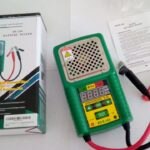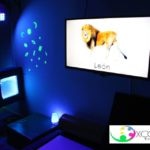World Usability Day: how design enhances our lives
World Usability Day is celebrated on the second Thursday of November. The goal of the day is to emphasize the importance of designing products that are simple to use and make life easier for everyone. BBVA Momentum, BBVA’s program to support social entrepreneurship, promotes companies that espouse inclusive design, ensuring no one is left out.

Although “usability” is not yet a universal entry in English dictionaries, the term is certainly heard more and more across a variety of domains. But what is it, actually? According to the language experts at Fundéu BBVA: "Usability refers to ease of use, to how the design of a product (any product) facilitates or hinders its use.” According to this definition, the term applies to every aspect of a product or service, but it is really in product design and technological devices where “usability” pulls the most weight.
Each year World Usability Day, which was created in 2005 by the Usability Professionals Association, is assigned a specific theme. This year the tagline to describe the theme is "Design for the future we want.” This slogan was inspired by the United Nations (UN) Sustainable Development Goals and invites professionals in related fields to practice responsible design in order to ensure a more inclusive, environmentally-friendly digital world. The BBVA Momentum ecosystem abounds with companies dedicated to offering products and tools that are accessible to everyone. Here are some examples:
Ingetronic Ltda (Colombia)
From Santa Marta, in northern Colombia, this company is dedicated to encouraging the adoption of renewable energy by designing and providing electronic equipment that is powered by solar and/or wind energy, thus making renewable energy accessible to people with limited resources. “The products that we introduce to the market are unique and are specifically designed to provide solutions customized to the needs of the rural sector where there is scant conventional energy,” explains Fernando Jose Vizcaino, manager of Ingetronic. “All this and without overlooking the urban and business markets, which also have to live with the high cost of energy.”
The company is committed to providing everyone the support needed to harness the full potential of the solar panels, energy inverters, batteries, and controllers they manufacture. Design is fundamental in the daily operations of this company, which strives for easy-to-use solutions. "In addition to reducing the implementation costs of renewable energy projects, we significantly enhance the functional aspects of our products so they can be easily adapted to specific climatic and design requirements. This puts us in a position to compete nationally when it comes to physical and remote technical support," he concludes.

Ingetronic is dedicated to encouraging the adoption of renewable energy by designing and providing electronic equipment that is powered by solar and/or wind energy.
Elysii (USA)
The U.S. social company, Elysii, has patented a device that, according to its creators, "works like Apple Pay, but doesn’t need wifi or a battery.” What’s really attention-grabbing about this product is its revolutionary design that has transformed a payment platform into an accessory: The Impact Ring. A debit, credit, or prepaid card can be paired with the ring in order to pay for financial transactions and access all the same functionality as any near-field communication (NFC) device: buying products and services, signing up to reward programs, purchasing tickets to events, etc.
In addition to the usual features for this type of device, the Impact Ring boasts an important social aspect: it facilitates the collection of donations for charitable causes and the kicking-off of initiatives for those in need. "It lets local communities create free transportation tokens and tickets to special events,” explains the company's CEO Shelly Silverstein. "It connects cities, businesses, residents and other stakeholders in a combined effort to support a specific goal such as, raising funds for affordable housing.”
Its usability has been key to successfully positioning the device in the market and attracting the attention of customers. The Impact Ring also benefits from a modern design aesthetic, available to anyone, and can be personalized to each consumer’s taste, thus finding an appeal in a wider variety of customers. “Our rings can be customized with logos and engraved ‘online’ as a gift for someone else, as business accessories, or simply to provide the customer with a unique accessory,” explains the CEO.
Risdel (Mexico)
Risdel is a social enterprise dedicated to developing innovative technologies for people with disabilities. Luis Fernando Romero, Risdel’s managing director explains that the company's mission "is to investigate, design, and manufacture medical technologies that help improve patient quality of life, with the added benefit that they are widely accessible and have a significant social impact.”
Risdel focuses on the design of affordable medical technologies, both for healthcare professionals and patients. One of its best-known solutions is Xcanda, a holistic rehabilitation system that provides multi-sensory therapy for patients with disabilities. This technological device has 16 applications designed to address various degrees of disability and can also be used for early childhood stimulation. It is versatile and inexpensive, created to be used by anyone: from large medical centers to individuals who want to have one at home. The company is thus fulfilling the dream embraced by its name: Xcanda, which means “hope” in Zapotec.

Risdel is a social enterprise dedicated to developing innovative technologies for people with disabilities.
Click here to learn more about companies sponsored by BBVA Momentum.